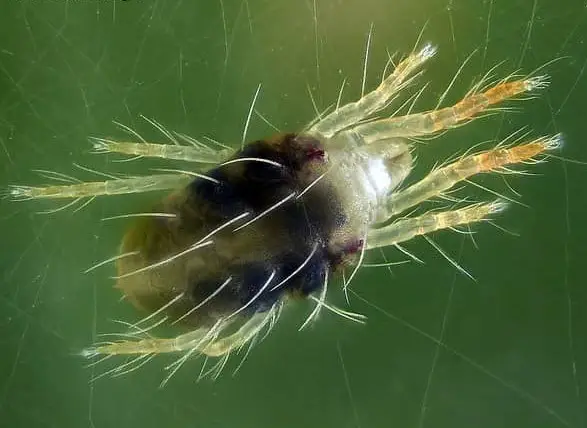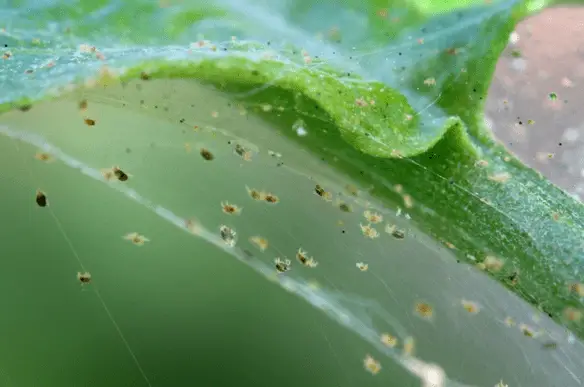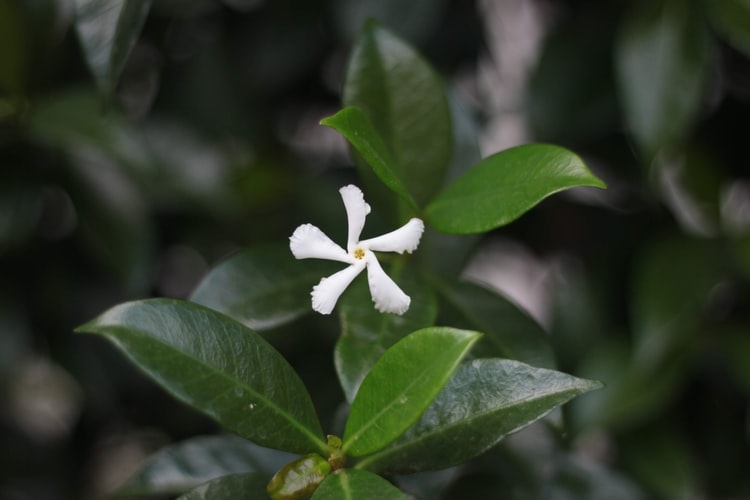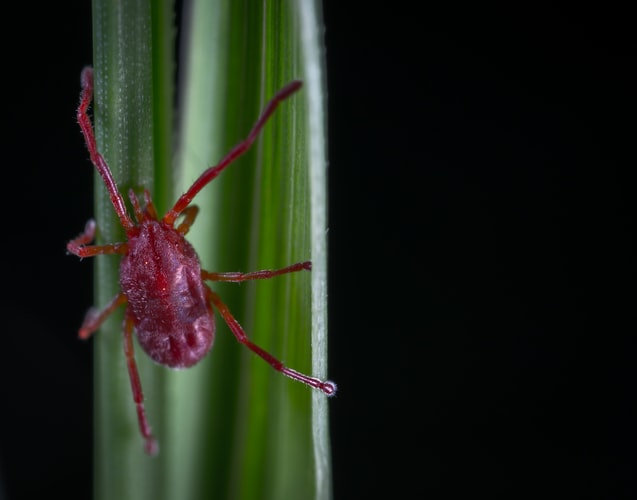Ants are capable of creating a huge army within a very short period of time. They multiply rapidly. As plant owners, we must pay attention to our beloved plants and take care of them as if they were a part of us.
Orchids are elegant and serene, extraordinary and fragrant, and are deeply loved by people. It hurts to see your beautiful orchids being invaded by ants.
If you don’t take care of the ants’ problem as soon as you notice a couple of ants around, you might face even bigger problems if your plant is indoors
That’s because the ants will eventually try to seek other homes once they completely conquer the orchids. They will spread all around your house, especially in the kitchen.
In this article, I will introduce to you what causes the ants to invade orchids, how to get rid of them once and for all, and how to prevent them from ever coming again near any one of your precious plants.
Table of Content
- How do ants negatively affect orchids.
- Ants Can lead to more serious diseases.
- Why Are there ants in Orchids.
- How to get rid of Ants on orchids.
- How to prevent ants from ever coming to your orchid.
How do ants negatively affect orchids
1. Ants slow down the growing process of orchids
As I mentioned earlier, ants can build their nests pretty fast. They are capable of digging holes in the orchid tray very easily. However, even though a couple of holes might not be something to worry about, you still need to get rid of them.
Ants are able to ruin the root system by affecting the normal absorption of nutrients and water. This results in root necrosis.
Additionally, generally, ants don’t feed on the roots of the orchid, however; they will nibble a few times which will cause damage to the root system or get infected by bacteria. And this can be a huge problem as the orchid will become weaker and might eventually die.
2. Ants lead to aphids outbreaks
Pest infestations such as aphids and spider mites on orchids will attract ants as these pests are considered to be food for ants. This might sound like a good natural solution to get rid of pests but not really!
Since both aphids and ants are harmful to any kind of plant, it is important to get rid of both and always keep your orchid clean and insect-free.
As I already mentioned, ants can invade a plant when the plant is infested by aphids. These ants will feed on them and transfer to a different plant.
Ants, while munching on pests, transport their larvae around and eat the honeydew they secrete causing an ever bigger outbreak of aphids. Additionally, when ants find other plants nearby, of course, they will try to invade them as well while carrying aphids’ residue.
And yes, you guessed it! all of your plants eventually will be suffering from aphids and ants.
That is why it is always important to get rid of pests as soon as you notice them on any plant of yours and take prevention measurements.
Related article: Causes of Aphids and How to Treat & Prevent Them Naturally
Ants Can lead to more serious diseases
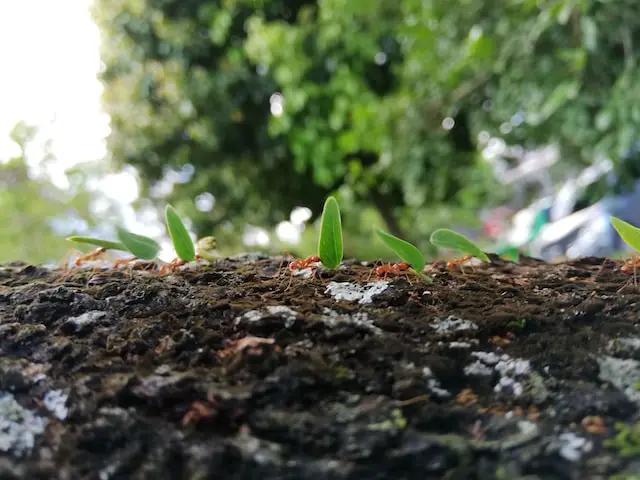
Ants are fast and active everywhere. When they go out for food, they will bring all kinds of edible things back to their old nests in the orchid tray. These things may carry different bacteria.
These bacteria will lead the orchid to get sick. This is easily overlooked by flower lovers. In fact, ants have a very strong carrying ability. There are countless things that are moved back to the nest every day, and many carry germs that may cause various diseases.
Related article: Most Common Orchids Diseases & How to Treat Them
Why Are there ants in Orchids
1. Sometimes, orchids release a honey-like liquid out of the underside of their leaves. And that’s what might cause ants to gather around your pot.
2. When orchids have root rot, they are more likely to attract insects and ants.
3. Some fertilizers have sweet compounds that attract ants.
4. There could be ants in your planting material.
How to get rid of Ants on orchids
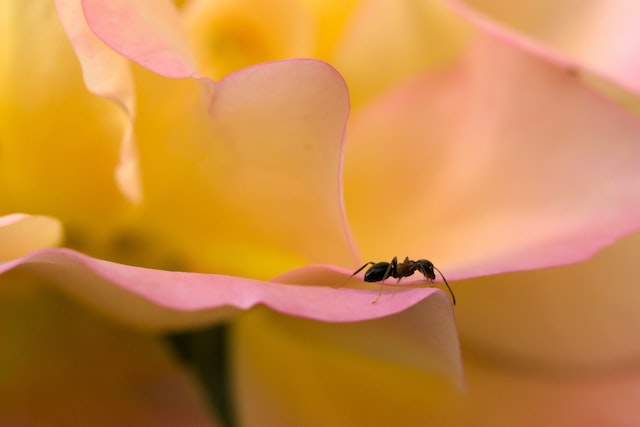
1. Change the planting material
The most thorough way to solve the ants in the orchid tray is to change the planting material. However, if you have ants in different parts of your home or garden, after changing the orchid planting material, the ants may still come back to settle down again.
Therefore, when replacing the plant material, it is necessary to use drugs to completely kill the ants.
2. Immersion basin
If you are not planning to change the planting material for the orchid, you can use the method of dipping the pot in water to eliminate the ants.
The steps are easy and simple:
- Prepare a bucket of water.
- Immerse the orchid pot completely in it for about 20 minutes.
- Now, sit and watch the ants coming out.
Important Note
When you use a dipping pot, it must be carried out under the condition that the weather is not very hot and the ventilation is good, otherwise, the dipping pot will take a long time, which will easily cause orchid root rot.
3. Use of drugs
The easiest and most effective way to completely eliminate the ants the in the orchid tray is to use drugs. Sprinkle trichlorfon or pesticide on the surface of the pot and the drainage hole at the bottom of the pot to kill the ants completely.
Now many ant killers can kill the whole nest, that is, put the medicine aside, and the ants think it is sweet and delicious, so they all move back to the ant nest and kill them in groups, which is very useful.
How to prevent ants from ever coming to your orchid
- Use healthy plant material and fully decomposed organic fertilizer.
- Provide more ventilation, to avoid long-term over-wet planting material. When the light is not strong, bask in the sun properly. Ants prefer moistness rather than dryness.
- If there are ants in the house, kill them on time.
- You can put garlic or onions on the orchid plate. Ants don’t like their taste and will avoid them.
- If you don’t like the smell of garlic or onions in your home, use ground coffee beans instead.
If you found this information helpful, you’re more than welcome to join our weekly newsletter. You can also follow us on our social platforms for more gardening tips:

